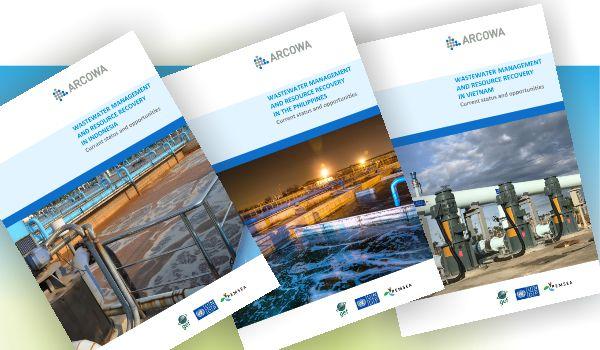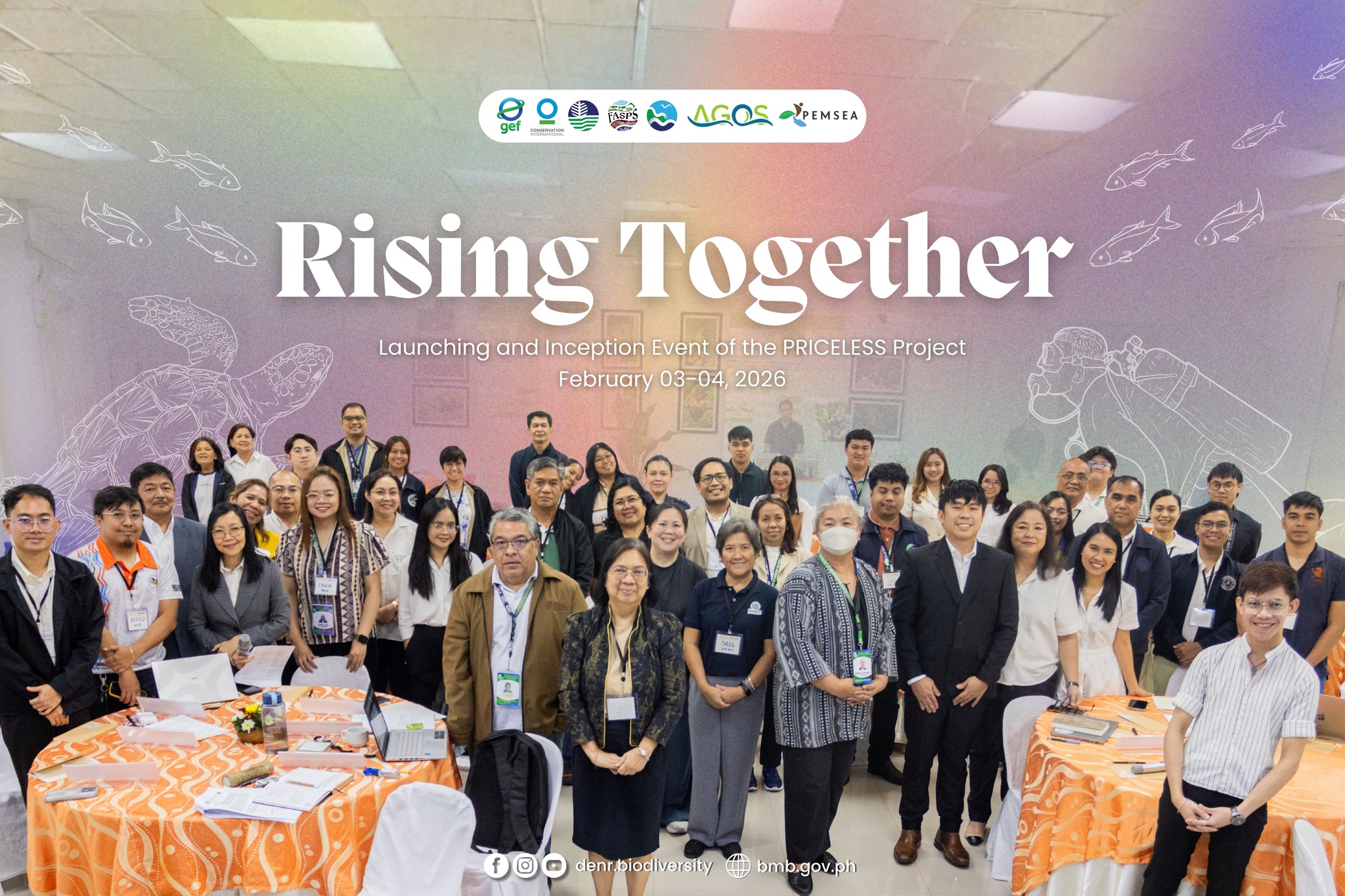Wastewater: an under-appreciated opportunity
Thursday, 28 February 2019

Front covers of the PEMSEAARCOWA wastewater reports
In many areas of East Asia, untreated water still makes its way into water bodies, causing significant negative impacts on coastal and marine ecosystems, including hypoxia, biodiversity loss, and a decrease in productivity. Local communities relying on these water bodies are also exposed to polluted water, with potentially severe health repercussions. Investment in wastewater facilities is thus critical for the healthy and sustainable development of communities in East Asia. While such facilities are complex, investment in wastewater can be profitable and can generate measurable positive social and environmental changes.
PEMSEA worked with ARCOWA to produce reports on the status of the wastewater management and recovery sector in Indonesia, the Philippines, and Viet Nam. These reports discuss the policies, institutions, national capacities, financial situation, and past experiences relating to the wastewater sector in these countries. The aim of the reports is to provide baseline information for prospective investors, and thus accelerate the uptake of investment in advanced wastewater treatment and resources recovery.
Though water resources in Indonesia exceed total demand, being an archipelago makes distribution difficult. Furthermore, 75% of rivers are highly polluted and water sources are threatened by environmental degradation and damaging land use changes. Aquifers are not fully replenishing and are at risk of contamination. Surface water scarcity events have occurred in cities in Java and Bali. Rapid urbanization is also exacerbating related local issues.
The Philippines similarly suffers from a geography that aggravates local shortages. The country aims to reach universal coverage of sanitation services by 2028, requiring investments estimated at USD 619 million per year. Water quality is a large issue, with 50 rivers in the country considered “biologically dead”, and 58% of groundwater considered contaminated. Only 10% of wastewater is currently treated and many urban areas lack sewerage systems.
Wastewater treatment in Viet Nam is inhibited by its combined drainwater and sewerage systems, although separate systems are required in new urban developments. Only 17% of urban wastewater and 4% of septage is treated is treated. A prolonged dry season causes seasonal water shortages in many areas, while rising water demand is exacerbating the risk of shortages. Flooding puts water sources at further risk of contamination.
Both domestic and industrial wastewater management are growth areas for investment with huge opportunities for positive economic and environmental returns. Regulations in all three countries requiring industrial buildings and sites to be connected to water treatment systems create significant demand, while agricultural wastewater is a greatly under-addressed market. The domestic wastewater sector has huge room for growth, with septic tanks still common even in urban areas.
Increased water re-use has strong potential in a variety of sectors. Depending on its contents, untreated water may be usable for other purposes. Safe re-use requires detailed guidance and standards but, if carried out correctly, can significantly reduce water stress.
Similarly, treating wastewater can generate new resources. Bio-energy generation, for example, is a proven potential application of certain wastewater. Nutrient recycling is another avenue for resource recovery. Such opportunities exist not only with raw wastewater, but also with water treatment byproducts such as septage sludge. In many cases, technology is already available for these actions, only awaiting the willingness to consider how it can be incorporated into wastewater infrastructure.
Encouraging public-private partnerships is a common objective across all three countries. These can be created both for the improved implementation of current systems or the building of new infrastructure. Government support can help generate public awareness and understanding of changes in waste practices.
The three country reports offer detailed analyses of existing efforts, policies, regulations, tariff rates, and habits in Indonesia, the Philippines, and Viet Nam. Direct research will uncover further investment opportunities in these countries, and the markets already hold potential for the adoption and expansion of existing systems and technologies. Further, improvements can be made across all stages of wastewater management, from collection to transport to treatment to disposal and reuse. We encourage everyone to read them and consider waste not as a worthless byproduct, but an opportunity to generate value while addressing one of the key environmental challenges we face today.
These reports are available alongside a wide array of other coastal development resources at the SEA Knowledge Bank.




